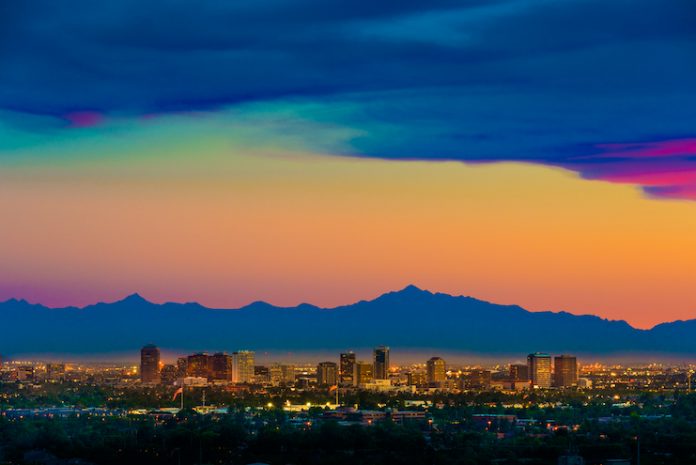According to Tim Hentschel, co-founder and CEO of the travel technology company HotelPlanner, most of the hotels in Glendale, Arizona, where Super Bowl LVII will be held on February 12, are full. In fact, the Holiday Inn closest to the stadium has been completely sold out since last year—and at room rates two or three times as much as guests could otherwise expect to pay during high season for the Phoenix area.
Hentschel notes that booking for this event commenced back in 2018 when it was announced that Glendale would host in 2023. Noting that there are 1,800 rooms among the 12 hotels in downtown Glendale, Hentschel says rates commanded at airport- and 2-star hotels for this period typically range between $200 and $300 per night, while 3- and 4-star accommodations go for $300 to $500. Those rates, he maintains, basically doubled or even tripled for Super Bowl week.
Reflecting on the overall Phoenix market—544 hotels accounting for 70,488 rooms—STR forecasts that revenue per available room (RevPAR) is expected to reach $419 for February 10-12, which would be the second-highest level for a Super Bowl weekend. The market, also hosting the Phoenix Open this week, is projected for Friday through Sunday night occupancy of 94 percent and an average daily rate (ADR) of $445.
Emmy Hise, senior director of hospitality analytics, CoStar Group, the parent company of STR, says STR doesn’t use a star rating system, but rather classification “tiers” for luxury, upper upscale, upscale/upper midscale, and midscale/economy.
Both Hise and Hentschel mention how the attendees of the event often impact what they are willing to spend for their hotel, which may be subject to minimum stay requirements.
“In terms of pricing,” says Hentschel, “It’s all relative. The cheapest single ticket for the game is $5,368. If fans are willing to pay more than that, plus transportation, food, entertainment, and souvenirs, they won’t think twice about doling out $1,000 or more a night on lodging.”
Hise, who maintains that most of the hotels near the stadium are considered middle-tier and lower-tier, agrees, saying, “People spending that much money on a Super Bowl ticket will be wanting to stay at a higher-end hotel.” This, she says, was the case with Super Bowl LVI in Los Angeles. “The greatest rate growth for last year’s Super Bowl was among the cluster of luxury hotels, although they were farther away from the stadium. Similarly, most of the luxury-hotel product near this year’s Super Bowl is actually in Scottsdale, which is about 40 minutes away from the stadium.”
Hentschel describes Super Bowl LVII, which is expected to bring in 150,000 visitors, as “a massive cash cow for any host city, especially the hospitality industry.” He makes the point that, although it’s an opportunity to gouge travelers willing to pay exorbitant prices for tickets, rooms, and more, hoteliers might well be advised to seize the opportunity to showcase instead what makes their hotel unique and inviting. “For many inbound travelers, this will be their first visit to Glendale, so even though it’s the high season in Phoenix, savvy hotel sales managers would be wise to offer Super Bowl guests some discount, voucher, points, or rewards for future hotel stays as an incentive to become a repeat customer.”











